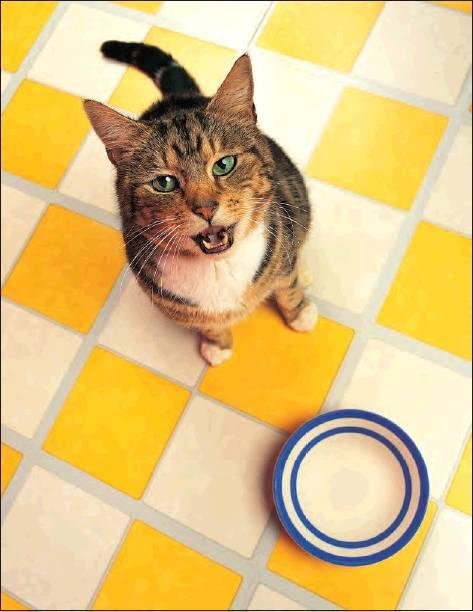Furry Friends
Is your cat getting too plump?
The Pet Doctor 359-6611
As a veterinary healthcare team, our goal is to help our patients live long, happy, and healthy lives.
That starts with proper …
This item is available in full to subscribers.
Subscribe to continue reading. Already a subscriber? Sign in
Get 50% of all subscriptions for a limited time. Subscribe today.
Please log in to continueNeed an account?
|
Furry Friends
Is your cat getting too plump?
The Pet Doctor 359-6611
As a veterinary healthcare team, our goal is to help our patients live long, happy, and healthy lives.
That starts with proper nutrition.
Nutrition is the relationship of food and nutrients to health.
When discussing nutritional health, consider these questions:
• What brand and type
of food do you feed
your cat?
• What brand and type of
snacks or treats do you
give your cat?
• Do you give your cats
any supplements? If so
what kind?
• Is your pet receiving any
chewable medications? If
so what are they?
• What type of chew toys
does your pet play with?
• What human foods does
your cat eat?
• Does your cat have access
to other sources of food?
• Does more than one family member feed the pet?
Obesity – having too much body fat – is one of the most common medical diseases in cats and causes a number of medical conditions.
Major diseases associated with obesity include diabetes, lameness, skin issues, problems with urination and some types of cancer. Helping your pet reach successful weight loss can have a positive effect on health and overall wellbeing.
Unfortunately, it is easy for obesity to develop, and weight loss can be a frustrating process. I understand your frustration as I am working on weight loss with one of my own pets.
Pet owners must be committed and motivated to work on weight loss. Your veterinary team can help you set realistic expectations from the start for ideal body weight.
Things to consider are the length of time it may take to lose the weight, rate of weight loss, cost of food in case you are using a specialty diet, behavioral changes (crying/begging for food) and committing time for exercise.
There is some controversy over how fast you should try and get weight off your cat. The current recommendation is to try for more gradual weight loss which would be around 1% body weight loss per week. Weight loss in cats involves a combination of calorie restriction and lifestyle changes. Changes include:
• Increasing physical activity with regular play sessions so your cat burns more calories.
• Changes in feeding patterns such as accurate measuring and recording of daily food intake. You may want to use food puzzles or hide dry food in small containers around the house so your cat has to “hunt” for food.
• Avoiding feeding your cat extra treats. When you look at that tiny treat, imagine yourself eating a treat 7 times that size.
• Switching your cat’s diet to one designed for weight loss. Restricting feeding too much can lead to malnutrition. You may need to modify the amount fed depending on amount of weight lost or lack of weight loss.
• Checking your cat’s weight every 2-4 weeks. You can use a tape measure to record your pet’s abdominal and chest circumference. Keep up with your pet’s progress by taking photos. Once the weight is lost, a healthy weight needs to be maintained. Increase food intake by 10% every two weeks until no further weight loss is noted. Monitor your cat’s weight every 2-4 weeks till you are satisfied that weight is being maintained. Be sure to consult with your veterinarian if weight loss is not going as planned.
Other items that may interest you










Comments
No comments on this item Please log in to comment by clicking here